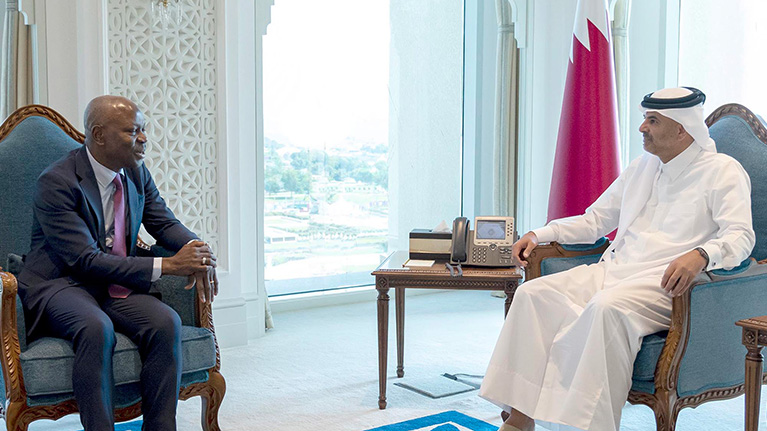The UN agency has praised Qatar’s labour reforms, adding that the Gulf nation was a model for other nations to adopt and follow.
Qatar’s recent labour reforms are a role model for other nations to adopt and follow, the director-general of the International Labor Organisation Gilbert Houngbo has said, Qatar News Agency reported on Sunday.
“I commend the State of Qatar for the progress that has been made in the past few years. Many lessons can be drawn from these labor reforms for other countries and also for ILO operations,” Houngbo said, following a two-day trip to Qatar.
He noted that continuing these reforms was among the ILO’s priorities, as well as collecting data for tracking changes, identifying gaps, and promoting continuous improvement.
“Migrants play a key role in the economic, social and cultural development of their host countries and their communities back home,” he said.
“Protecting their rights as workers and human beings is at the heart of the ILOs mission to advance social justice and promote decent work. We are ready to work with governments, workers, employers and any other partners in Qatar, and in all countries, to help us achieve this goal.”
Qatar’s labour reforms and ILO partnership
Since winning the bid in 2010, Qatar has launched a vast development programme as part of its preparations for the FIFA World Cup 2022. This included the construction of stadiums and other infrastructure projects like hotels, highways, and public transportation systems from scratch.
In the past ten years, Qatar made tremendous changes and reforms to labour rights, to ensure improved working and living conditions for hundreds of thousands of migrant workers.
These included changes to the Kafala (sponsorship) system, which included removing the requirements for workers to obtain exit permits to leave the country, and no-objection certificates to change employers.
Additional reforms include the implementation of a minimum wage for all workers, the creating enterprise worker-management committees, with elected migrant worker representatives, an online platform for filing labour complaints, and labour courts.
Additionally, there have been enhancements to workplace safety and health, such as additional limitations on daytime working hours to prevent summer heat stress.







